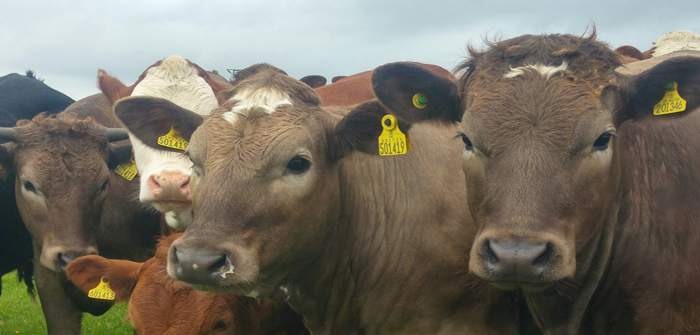Traditionally regarded as being of minor importance in Europe, recent evidence suggests that the prevalence of rumen fluke infection is increasing in parts of the UK.
But, with quantifiable figures of the exact impact to animal health, welfare and farm profits unknown, there appears to be a significant gap in the understanding of this parasite.
This knowledge gap has prompted a three-year study to promote a better understanding about the parasite and its exact impact on animal health and welfare.
Jason Rankin, a representative from Control of Worms Sustainably and general manager at Agrisearch, said that historically liver fluke has been the main focus for producers.
“In recent years however, there has been an increase in the incidence of rumen fluke infection, resulting in acute disease and death in young cattle,” said Mr Rankin.
“One contributing factor for this may be the changing weather patterns we’ve seen. The warm wet summers and mild winters are known to favour an increase in the number of snails, which act as the intermediate host, and facilitate the completion of the rumen fluke life cycle.”
“Nevertheless, this theory has not been thoroughly investigated in the UK, hence the lack of industry knowledge about how to manage and control the parasite,” he added.
“What remains unclear is to what extent rumen fluke infection can impair the animal in terms of causing pain, distress and the effect it has on the animal’s metabolic status and behaviour.”
The study, a collaboration between Agrisearch, AHDB Beef and Lamb, AFBI and Queens University Belfast, will aim to determine the prevalence and distribution of rumen fluke in the UK, quantify the impact of rumen fluke infection on animal welfare and performance, while enabling the development of tools to aid early diagnosis.
“A lot of information is known about liver fluke, and there are several anthelmintics which are effective against its infection. But, only one anthelmintic is effective against rumen fluke, and there are no authorised veterinary medicinal products in the UK indicated for the use against rumen fluke,” says Mr Rankin.
“We are at risk that with limited options to control rumen fluke, over or improper use of the only available anthelmintic could lead to the development of anthelmintic resistance.”
Photo credit: Mark Jelley


